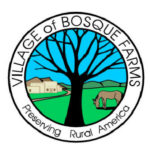“Desperate times call for desperate measures,” so the saying goes.
I guess we can all attest to that considering the past 19 months. “Desperate” means “driven to or resulting from a loss of hope; offering so little chance for improvement as to cause despair; extremely dangerous or serious; or having a very great need.”

Colleen Dougherty
It’s a word befitting the current plight of thousands of sentient beings we often refer to as “man’s best friend,” but who, in a few far off countries, are referred to as “dinner.”
Since 2016, the non-profit No Dogs Left Behind has been rescuing dogs from the illegal dog meat trade in parts of Asia, South Korea and the Chinese province of Yulin, where many animal welfare groups have been working for years to shut down the annual Yulin Dog Meat Festival.
The consumption of dog meat has a long history in countries all over the world — including ours. In the last decade or so, it’s become widely outlawed due to the value of the social and emotional bond between man and dog. The Dog & Cat Prohibition Act of 2018 outlawed it here, but prior to that the practice was allowed if the breeding and slaughtering was done in a humane manner.
Tragically, the animals involved in this dog meat trade are subjected to “horrific forms of animal abuse,” (Jaqueline Finnegan, president of NDLB.) Traffickers and butchers gather strays, lost or stolen pets, large-breed dogs that are popular here but illegal in China, and dogs from farms who are raised using the same inhumane livestock practices found all over the world.
While I’d been receiving alerts from the Humane Society and signing petitions, an email last June from NDLB announced a sudden, devastating twist in the story. Here is what happened:
On June 14, 2021, the CDC slammed the door on the efforts of more than 90 rescue groups, and on the lives of thousands of U.S. Foreign Service workers and other U.S. citizens living and traveling abroad with their pets when it suddenly and without warning imposed a 100 percent ban on dogs coming into the U.S. from 113 countries — more than half the countries in the world.
The ban did not follow proper legislative processes, allowed for no public comment period and was slated to go into effect just 30 days after the announcement. Aside from the mental, emotional and financial blow this resulted in, the reason for the ban confused and confounded everyone — rabies.
According to their own CDC statistics, no rabies positive dog had come into the U.S. from China in the past decade. Wayne Pacelle, founder of Animal Wellness Action, reported in a press conference that of the six million dogs entering the U.S. in the past six years (pets and rescues,) three have tested positive for the virus and were stopped at the gate.
For decades, anyone bringing an animal into the country, whether a family pet or rescue, has followed the CDC’s rigorous rules, sometimes going above and beyond those rules to assure the health and safety of animals and people alike.
Pacelle and others, including Ambassador Eric Ruben, president of the American Foreign Service Association, called the ban something “that really didn’t need to happen … a policy that throws proper risk assessment out the window.”
Jeff Beri, founder of No Dogs Left Behind stated, “The science simply does not support a blanket prohibition on importing dogs.”
Pacelle passionately lauded the more than 30,000 animal welfare groups in the U.S., who are beacons of hope and humanity for animals here and across the world. In countries where inhumane treatment of animals and lack of knowledge and resources to properly and humanely care for pets, working animals and livestock exists, these groups rescue animals from harm’s way, host vaccine and spay/neuter clinics and provide pet owners and officials with knowledge and resources that will keep animals and people safe and healthy.
That our own government could throw a wrench in that spirit in the middle of a pandemic, and while ignoring the mink farm/COVID connection (October column) has left thousands shocked, confused, hurt and stranded.
As the title of this month’s column suggests, this has definitely challenged my sense of hope. Luckily, animal welfare personnel and members of government have not lost theirs.
Among other legislation, a bipartisan congressional letter, signed by 57 congressmen and women was delivered to CDC Director Dr. Rochelle Walensky implored this ban be lifted. You can read more about it and sign the petition on the NDLB website. A lighter column next month …
(Colleen Dougherty’s 12-year history in animal welfare includes work in a veterinary clinic, shelters in Santa Fe and Albuquerque, and currently as a volunteer for the Valencia County Animal Shelter. She has been a speaker at the NM State Humane Conference on three occasions, presenting talks on caring for small mammals in the shelter setting, and compassion fatigue in animal welfare. She holds degrees in art and counseling therapy, and certificates in eco-psychology and feline massage therapy.)
















